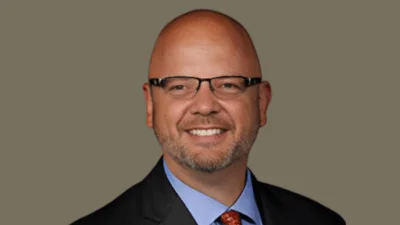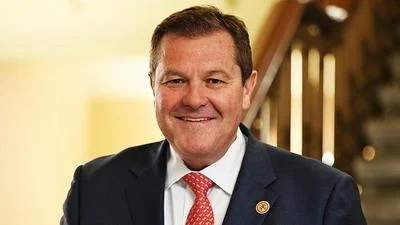State Representative Wayne Rosenthal (IL) | Representative Wayne A Rosenthal (R) 108th District
State Representative Wayne Rosenthal (IL) | Representative Wayne A Rosenthal (R) 108th District
Illinois House Republicans are renewing their call for much-needed ethics reforms in the wake of a series of corruption convictions involving Democrats. The list of convictions continues to grow, and the silence from the Democrat side is concerning.
In 2023 alone, federal prosecutors in Chicago secured several convictions related to bribery and corruption. Four former Commonwealth Edison employees were convicted of conspiring to bribe former House Speaker Mike Madigan. Former Madigan Chief of Staff Tim Mapes was convicted of lying to a grand jury to hinder the bribery investigation. Chicago businessman James T. Weiss was convicted of bribing two Democratic state lawmakers, wire and mail fraud, and lying to the FBI. Furthermore, former Chicago Democratic Alderman Edward Burke, a member of the City Council for 54 years, was convicted of racketeering, bribery, and attempted extortion after a five-year corruption trial.
The indictment of Mike Madigan, the longest-serving state House speaker in modern U.S. history, on federal racketeering and bribery charges in 2022 further highlighted the need for ethics reform. However, Madigan's trial, originally scheduled for April 2024, has been pushed back to October 8, 2024.
Representative Rosenthal emphasized the importance of strong ethics laws in protecting the trust placed in lawmakers by the people of Illinois. He stated, "The only way to put an end to corruption in Illinois is to change our current laws that allow it."
Representative Patrick Windhorst criticized House Democrats for their lack of action in addressing the culture of corruption in Illinois. He highlighted their failure to hold task force meetings and their refusal to pass meaningful ethics reform measures. Windhorst stated, "House Democrats have expressed no willingness so far to change the culture of corruption in Illinois."
Illinois, which ranked as the second-most corrupt state in the nation in 2022, faced numerous corruption and misconduct charges that year. The elevated number of ethics complaints contributed to this ranking.
Representative Ryan Spain is leading the charge to root out and punish corrupt politicians. He has sponsored legislation to grant the Inspector General's Office subpoena power without requiring legislative permission. Spain has also co-sponsored bills to prevent indicted officeholders from receiving pension benefits and to prohibit the use of campaign funds for legal defense purposes by indicted politicians.
Spain emphasized the urgency of taking action to address the ongoing ethical issues in Illinois. He stated, "Unless and until action is finally taken, poor ethical behavior will still be the norm in Illinois government under the thumb of Illinois Democrats."
In their efforts to combat corruption and strengthen ethics, Illinois House Republicans have proposed several bills. These include House Bill 4119, which prohibits elected officials from using political campaign donations for criminal defense. House Bill 1277 suspends benefit or annuity payments to a member of a retirement system or pension fund if they are charged with a felony. House Bill 4286 imposes a three-year revolving door ban on lobbying, while House Bill 4288 requires timely reports from the Executive and Legislative Ethics Commissions. Finally, House Bill 4289 expands the definition of "officials" and "lobbying" in the Lobbyist Registration Act.
Representative Tony McCombie highlighted the longstanding efforts of House Republicans to push for significant ethics reforms. He criticized the Democrats' complacency with the status quo and their failure to protect Illinois families. McCombie expressed willingness to engage in bipartisan discussions to close loopholes and enhance penalties for those who violate the public's trust.
Illinois House Republicans are committed to addressing corruption and creating stronger ethics reforms. Their proposals aim to close loopholes, enhance transparency, and hold accountable those who betray the public's trust. It is crucial for the state to take swift action to restore confidence in its government and ensure the well-being of its residents and businesses.




 Alerts Sign-up
Alerts Sign-up